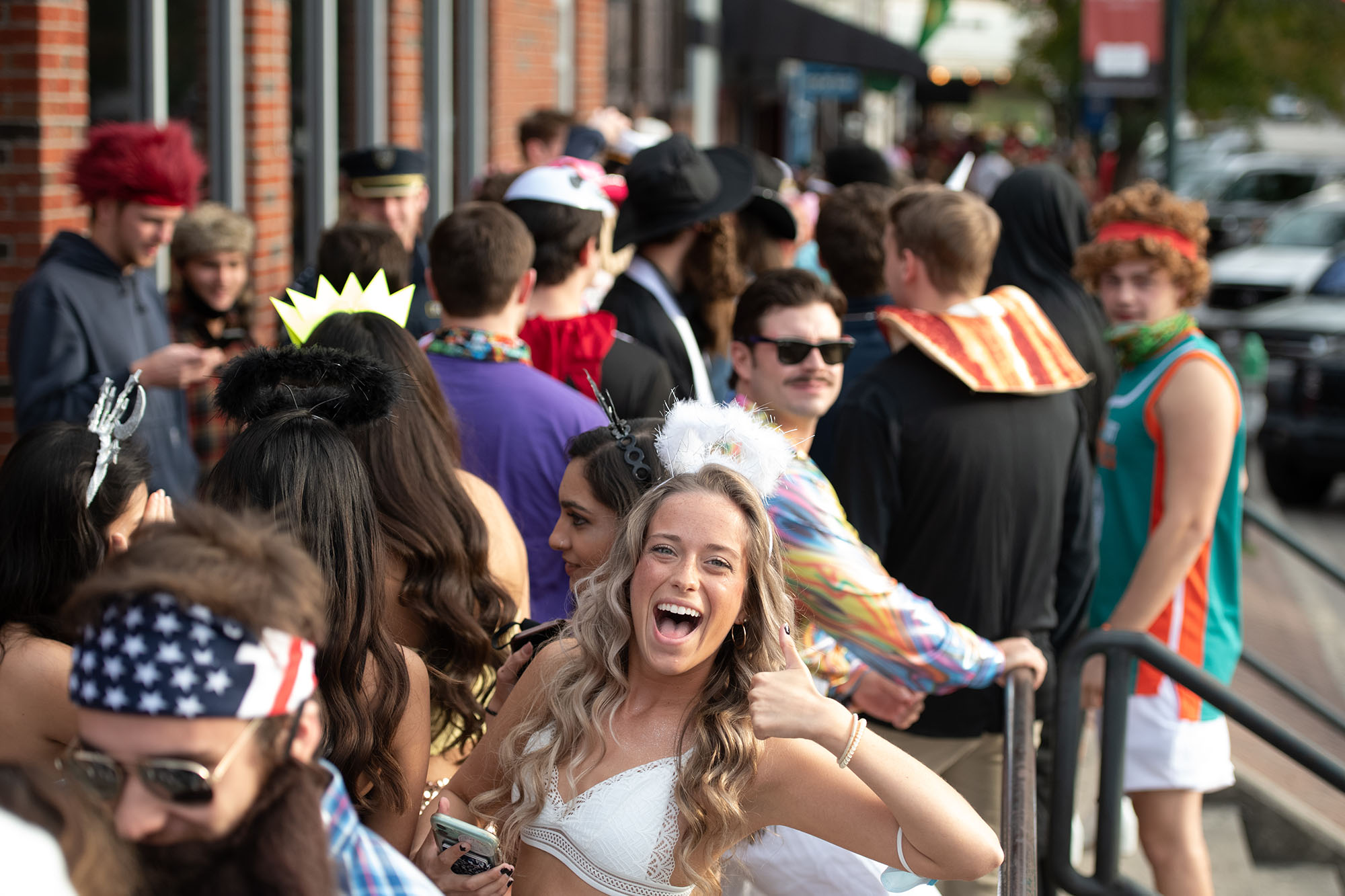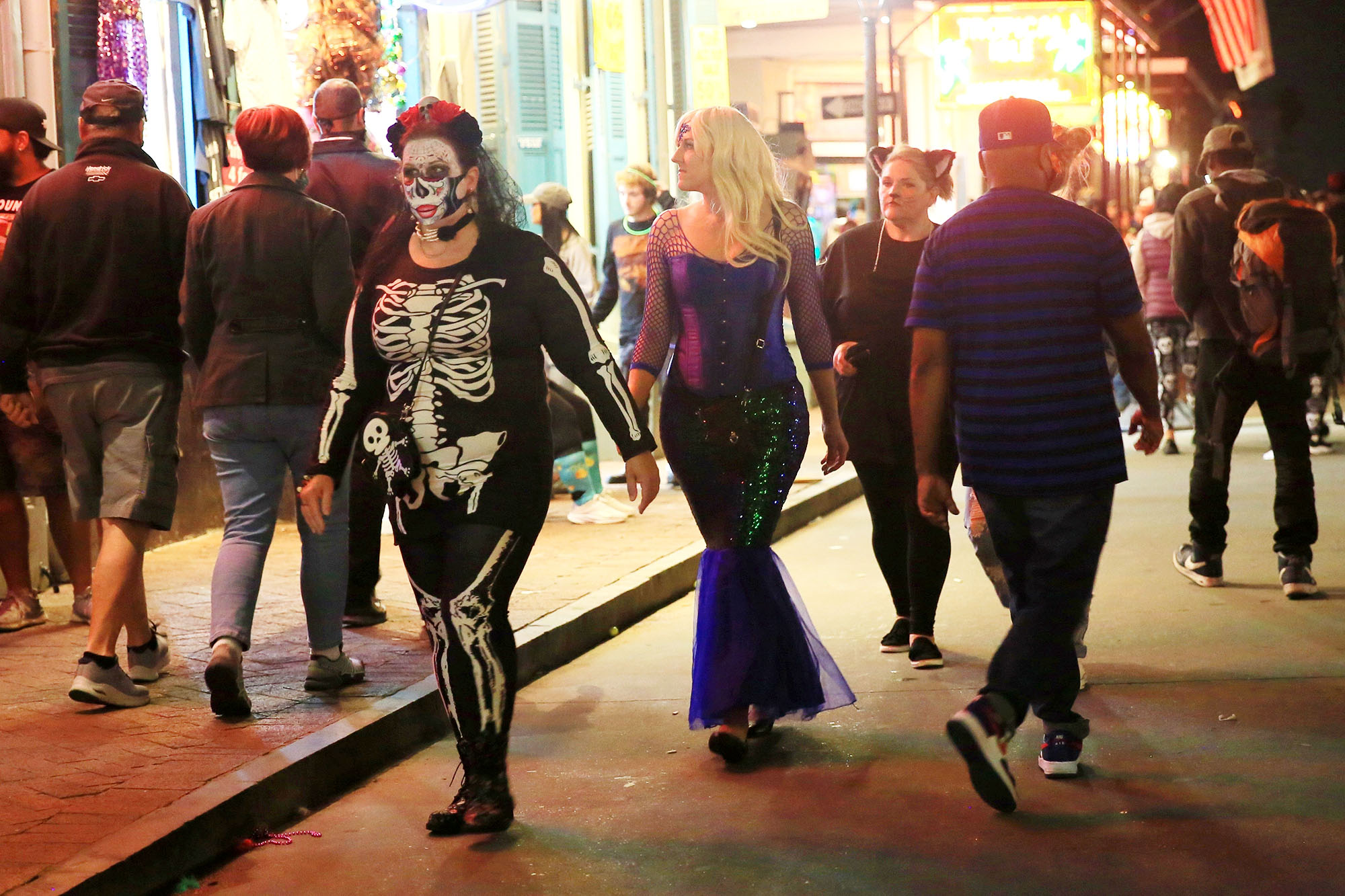Halloween gatherings cited by authorities as leading to COVID-19 outbreaks
Social gatherings have been specifically cited as causing the outbreaks.
As leftover candy stashes run low in American households across the country, several state officials and school authorities have begun citing coronavirus outbreaks related to Halloween, less than two weeks after the fall holiday.
Throughout the pandemic, social gatherings and crowded venues have resulted in an escalation of COVID-19 cases across the country. Prior to Halloween, the Centers for Disease Control and Prevention, and other health experts had repeatedly warned Americans about the risk of contracting COVID-19 during the holiday, and in particular, at indoor costume gatherings.
Despite these warnings, some people flouted recommendations. Although several large events made headlines, such as a gathering in Utah, which reportedly attracted thousands of costumed attendees, other smaller events in private homes and dorm rooms, seemingly slipped under the radar.
And now, officials say those smaller events could be contributing to the surging COVID-19 case numbers seen in communities across the country.
As Oregon recorded its highest daily case figure on record on Thursday, health officials said that this week's rising case numbers could be traced to Halloween-related events, and more specifically, to several small social gatherings, as well as to a party with more than 100 people in attendance.
During a press conference earlier this week, California Gov. Gavin Newsom also said officials believe the state's recent increase in cases may be tied to Halloween celebrations.
"We're starting to see people again take down their guard, take off their masks, begin to mix outside their households," Newsom said Monday. "We're seeing some early indication related to Halloween. I'm very sober about that and that's what I was elected to focus on first and foremost."
In Missouri's St. Louis County, a Halloween party has led to at least five positive COVID-19 cases, with possibly 200 high school students exposed to COVID-19, according to local officials, and following an increase in cases, the city of St. Louis Mayor Lyda Krewson announced new restrictions Thursday on private gatherings.
"Informal social gatherings, like Halloween parties, are ideal transmission sites for the virus because people let their guard down," said Kelley Vollmar, health director for Jefferson County, Missouri, a suburb of St. Louis, in a statement. "They usually don’t social distance or wear a mask because they are with people they know and presume to be safe exposures."

In New York, Suffolk County Executive Steve Bellone tied his community's "disturbing" rise in coronavirus cases to Halloween gatherings. Another county official in Onondaga County, New York, called the recent COVID-19 uptick "the Halloween surge.''
Colleges have also found themselves facing the consequences of students' desire to celebrate the holiday, as COVID-19 clusters pop up on campuses. In the last week, Tulane has reported over 300 new coronavirus cases, which the college president said were the result of "poor decisions" over the Halloween weekend.
"We are seeing a spike in university student cases related to Halloween and storm activities," Dr. Jennifer Avegno, director of the New Orleans Health Department, said of the rise in cases at Tulane in a press conference earlier this week.
The University of Tennessee in Knoxville also identified a COVID-19 cluster connected to an off-campus gathering on Halloween.
Although it is ultimately difficult to measure how much these gatherings are actually contributing to the exponential surge the U.S. is currently experiencing, it is clear that when mitigation efforts are not followed at celebrations, COVID-19 cases can follow -- a worrisome trend as we head into the winter holidays, according to health experts.
"We are entering the hardest days of the pandemic just as we are getting to Thanksgiving," said Dr. John Brownstein, chief innovation officer at Boston Children's Hospital and an ABC News contributor. "With exponential growth of cases around the country, we expect potentially 200,000 cases a day by Thanksgiving."
"If you then superimpose Thanksgiving indoor gatherings and travel, which is already a known driver of other respiratory diseases, we could see the pandemic hit new record case counts. These new cases will likely contribute to health care system overload and a rapid rise in mortality," Brownstein added.

The U.S. recorded a record 150,526 cases on Thursday, according to The COVID Tracking Project. The national seven-day average of new cases has surged by 161% over the last month, with over 100,000 COVID-19 cases reported for the last nine consecutive days.
Dr. Anthony Fauci, director of the National Institute of Allergy and Infectious Diseases, has also been urging caution for Thanksgiving this year, stating that it is critical that people take into account the risks of small gatherings this year, particularly if the coronavirus status of certain members is unknown.
"You get one person that is asymptomatic and infected and all of sudden four or five people in that gathering are infected. To me, that's the exact scenario you're going to see on Thanksgiving," Fauci said during a livestream last month with the Journal of the American Medical Association.
The CDC recommends celebrating the holidays virtually this year, or with members of your own household.



